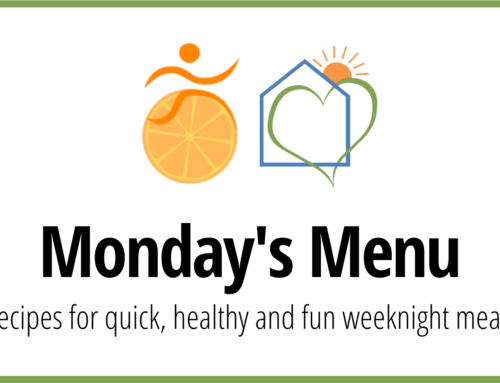Eating Seasonally: What Does That Mean and How is it Beneficial?
Submitted by Anna Pippin, MSHN
There is nothing that tastes better than eating a freshly picked, still warm from the sun, fruit or vegetable! With the seasonal change upon us (hello SUMMER!) it usually means that the fresh and local available produce where we live also changes. Eating seasonally is the concept of eating foods that are ‘in season’ or are being grown, harvested, and eaten all during the same season. For example, in New Hampshire it would mean eating asparagus in the Spring, strawberries in the Summer, and apples in the Fall.
Seasonal eating can be beneficial for many reasons. First, when a fruit or veggie is picked when it’s ripe and consumed immediately or within days, it is fresher, tastier, and actually more nutritious than produce that is eaten weeks, if not months after it is harvested. Studies have shown that fruits and veggies that have been allowed to ripen when still attached to their parent plant have more nutrients than when they are picked early. Unfortunately, many times produce is picked before it is ripe because it needs time to be shipped across the country or across the ocean before it spoils, so it lacks nutrients and not to mention is not very eco-friendly. And, when produce is grown out of season, they often require premature harvesting, artificial ripening agents, and preservatives to keep the produce fresh until it’s purchased. So, when you purchase blueberries at the grocery store during the winter, they have most likely traveled a long distance and are not as fresh as you may think. Another example are apples, which can be stored for several months (up to a year) before they actually hit the grocery store shelves!
Another reason eating seasonal produce can be beneficial is because it is cost effective. When you take the hidden costs out of the equation such as time, transportation, and people involved in the process to get the produce to your grocery store, this fruit or vegetable that is out of season is going to be expensive! However, if you buy produce that is in season, the money supports your local economy and the local farmers. You cut most of the middle men out, and are left with inexpensive, delicious produce. A good example of this that I noticed recently is the local organic pick your own blueberry patch that my daughters and I go to every summer. You can pick these organic blueberries in July and August for an inexpensive $3.00 a pound! This past Spring I was in the supermarket and saw organic blueberries for $5.99 and this was only for a small 6oz. container!
By no means should you not eat certain produce when it is not in season. If you are an apple lover and want to eat them year round, eat them up! All fruits and vegetables are healthy and important to have in your diet, everyday. Eating seasonally is just a way to be mindful about the produce that you do buy, and if you are able to choose seasonal produce when grocery shopping or are able to visit a local farmers market, your community, the environment, and your health are all going to benefit!
Here is a list of some common fruits and vegetables that will likely be harvested this Summer in New Hampshire and Vermont, and you can find them at farm stands, farmers markets, and oftentimes at your local grocery store:
- Beets
- Blueberries
- Broccoli
- Cabbage
- Carrots
- Cauliflower
- Celery
- Corn
- Cucumbers
- Eggplant
- Green Beans
- Kale
- Melons
- Onions
- Peaches
- Peas
- Peppers
- Potatoes
- Raspberries
- Strawberries
- Squash
- Tomatoes
- Zucchini
There are also countless local farms and farmstands in and around the Upper Valley, and here is a list of just a few:
- Cedar Circle Farm, Thetford, VT, https://cedarcirclefarm.org/visit
- 4 Corners Farm, Newbury VT, http://www.4cornersfarm.com/
- Crossroads Farmstand, Post Mills and Norwich, VT, https://www.crossroadfarm.com/
- Edgewater Farmstand, Plainfield, NH, https://www.edgewaterfarm.com/farmstand-kitchen
- Woodstock Farmers Market, Woodstock, VT, https://woodstockfarmersmarket.com/about-us/
- Hanover Farmers Market, Wednesdays from 3-6pm https://harvesttomarket.com/farmers-market/Hanover-Farmers-Market-NH
- Lebanon Farmers Market, Thursdays from 4-7pm, https://lebanonnh.gov/806/Farmers-Market
References:
Henry, A. (2014, April 15). Why Eating Seasonally and Locally Is Better for You (and Your Wallet). Retrieved September 7, 2020, from https://lifehacker.com/why-eating-seasonally-and-locally-is-better-for-you-an-1563025065
Julie M. Goolsby, M.A. “4 Reasons To Eat By The Seasons What Is In Season Right Now.” Mindbodygreen, Mindbodygreen, 16 Oct. 2019, www.mindbodygreen.com/0-4807/10-Reasons-To-Eat-Whats-In-Season.html.
Why Eat Seasonally? (2020). Retrieved September 7, 2020, from https://www.seasonalfoodguide.org/why-eat-seasonally#:~:text=Seasonal food is fresher, tastier,food consumed out of season.&text=Also, unlike out of season,tasting and full of flavor.
If you have a wellness themed topic you would like to share or learn more about, and/or blog/vlog about as an expert in a health/wellness related field, please reach out to shelby@cclyme.org.
Shelby Wood
Manager of Program Development
CommunityCare of Lyme
Shelby@cclyme.org
802-468-7776








Leave A Comment